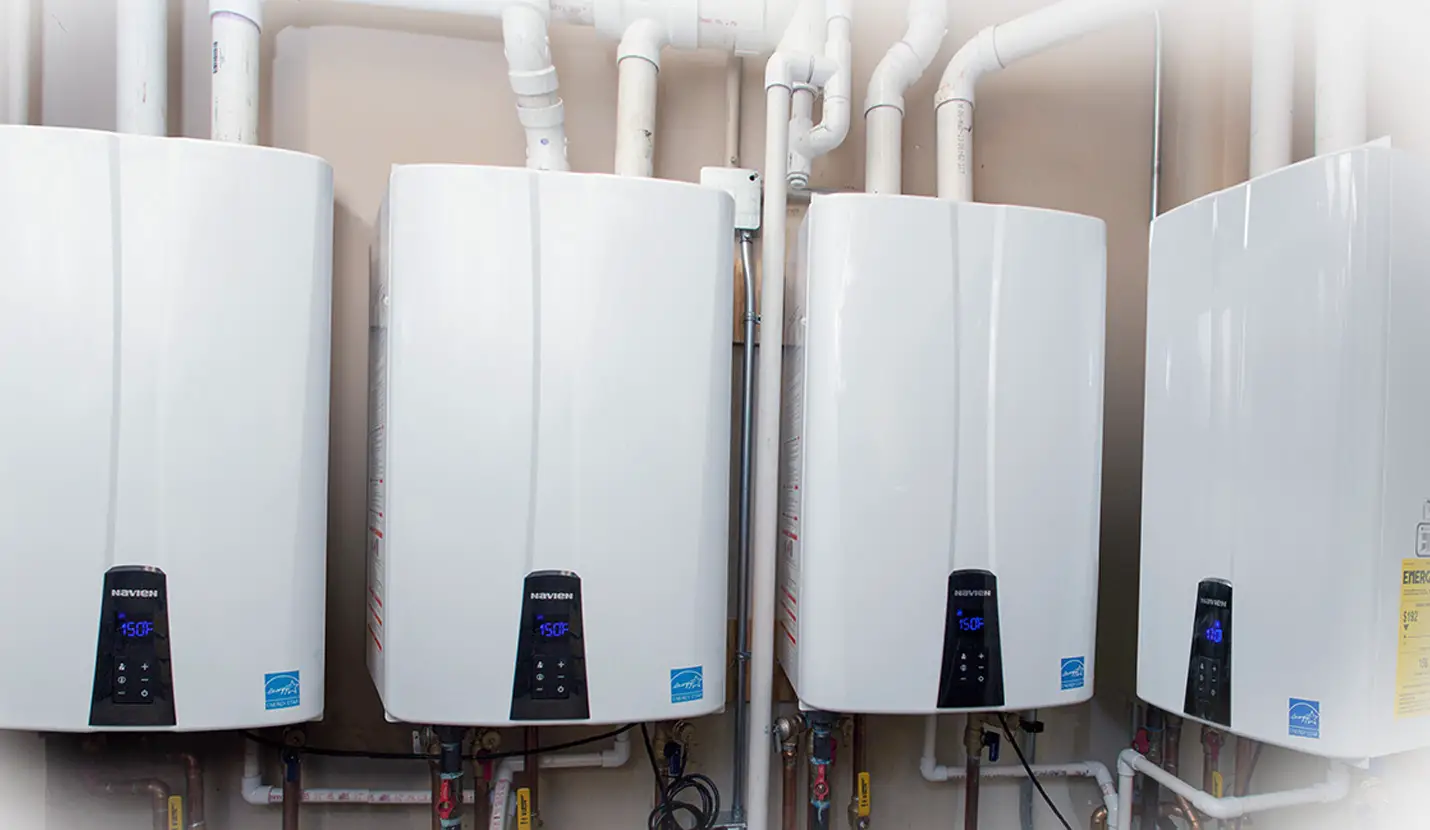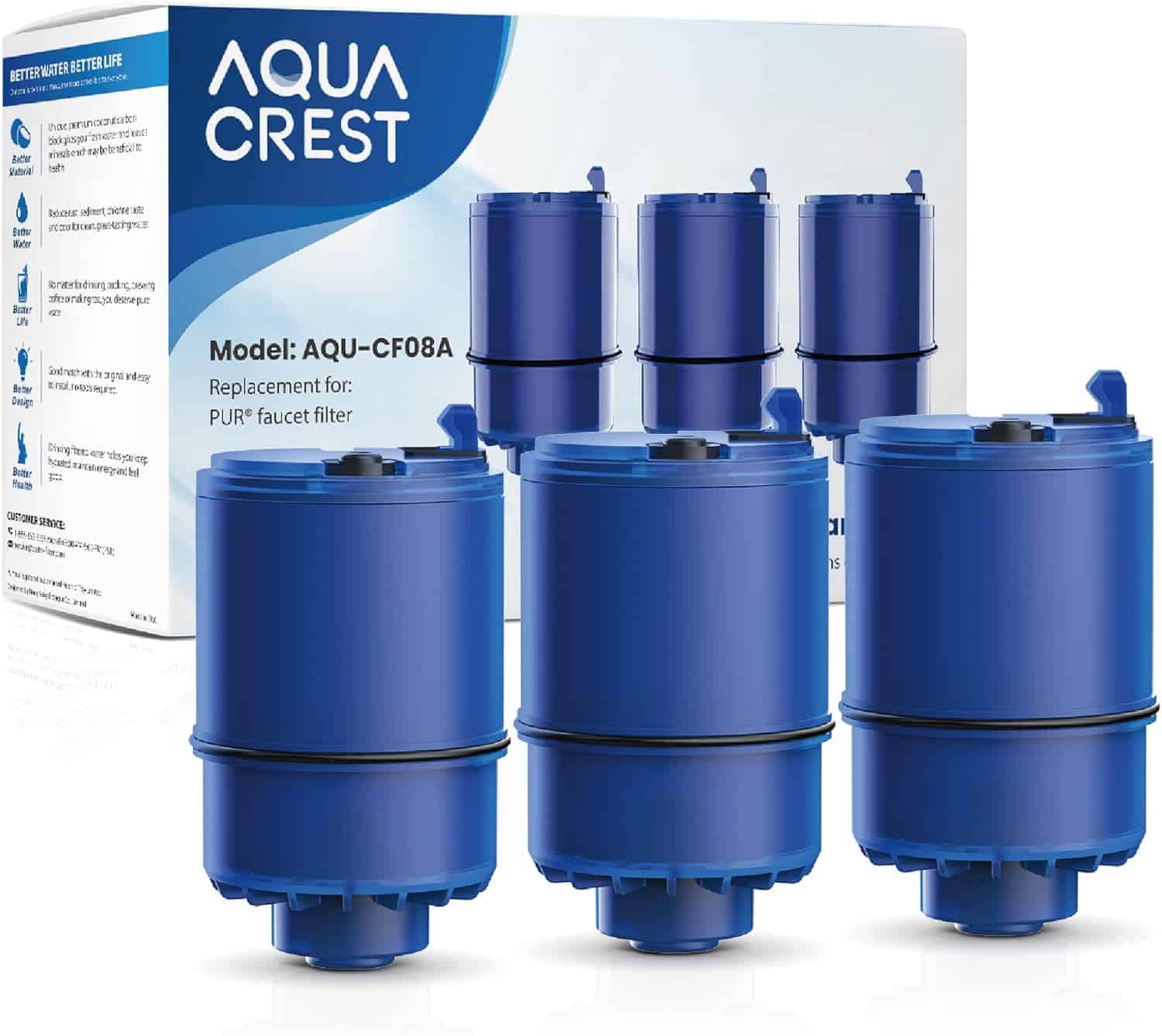Pros and Cons of Tankless Water Heaters: Quick Guide
Hot water is essential to our daily lives, whether for showering, cooking, or cleaning. As homeowners, it’s crucial to have a reliable and efficient water heating system. In recent years, tankless water heaters have gained popularity due to their numerous advantages over traditional ones.
Before making a purchase decision, you must understand the pros and cons of tankless water heaters to ensure they meet your needs. This comprehensive guide will explore the key benefits and considerations associated with tankless water heaters.
How Do Tankless Water Heaters Work?
Tankless water heaters, also known as on-demand water heaters, operate differently from conventional tank water heaters. Instead of continuously storing and heating a large volume of water, tankless heaters provide hot water on demand. When a hot water faucet is turned on, cold water flows through a heating element or a gas burner, rapidly heating the water as it passes through. This process ensures a constant supply of hot water whenever it’s needed.
The Pros of Tankless Water Heaters
- Endless Hot Water Supply: One of the most significant advantages of tankless water heaters is their endless hot water supply. Since they heat water on demand, there is no need to worry about running out of hot water, making them particularly suitable for large households or families with high hot water demands.
- Energy Efficiency and Cost Savings: Tankless water heaters are known for their energy efficiency, resulting in potential cost savings over time. Unlike tank water heaters that continuously heat and reheat water, tankless models only use energy when hot water is needed. This efficient operation can reduce utility bills, especially in households with lower hot water consumption.
- Space-Saving Design: Tankless water heaters are compact and can be wall-mounted, saving valuable space in your home. Their smaller footprint makes them ideal for apartments, condos, or homes with limited storage areas. With tankless water heaters, you can reclaim the space once occupied by a bulky traditional water heater.
- Longer Lifespan: Tankless water heaters generally have a longer lifespan than tank water heaters. Traditional tank models typically last around 10-15 years, while tankless units can last up to 20 years or more with proper maintenance. Additionally, since tankless heaters don’t store water, there is a reduced risk of leaks and corrosion associated with tank failures.
The Cons of Tankless Water Heaters
- Higher Initial Cost: One of the main drawbacks of tankless water heaters is their higher initial cost. Compared to traditional tank models, tankless heaters require a larger upfront investment. However, it’s essential to consider the long-term cost savings that can offset the initial expense, especially considering their energy efficiency and extended lifespan.
- Limited Flow Rate: While tankless water heaters provide an endless hot water supply, they have a limited flow rate. Depending on the model and size, they may struggle to simultaneously handle multiple high-demand hot water tasks. In such cases, installing multiple units or strategically planning hot water usage may be necessary to ensure an adequate flow rate.
- Additional Installation Requirements: Installing a tankless water heater may require specific adjustments or upgrades to your plumbing system. This can include the installation of dedicated gas lines, electrical outlets, or modifications to accommodate the unit’s specific requirements. Hiring a professional contractor with experience in tankless water heater installations is strongly recommended to ensure proper installation and optimal performance.
- Dependency on Electricity or Gas Supply: Electric tankless water heaters rely on a reliable electricity supply, while gas-powered models depend on a consistent one. It’s important to ensure that your home has a reliable power source that can support the operation of an electric tankless water heater or a consistent gas supply for gas-powered models. In areas prone to power outages or gas disruptions, this dependency could affect the availability of hot water.
Frequently Asked Questions about Tankless Water Heaters
Q1: Are tankless water heaters more energy-efficient than tank water heaters?
A1: Tankless water heaters are more energy-efficient because they only heat water when needed, reducing standby energy losses.
Q2: Do tankless water heaters provide unlimited hot water?
A2: Yes, tankless water heaters provide an endless supply of hot water since they heat water on demand.
Q3: Are tankless water heaters suitable for large households?
A3: Tankless water heaters are ideal for large households as they can meet high hot water demands without running out of hot water.
Q4: What is the lifespan of a tankless water heater?
A4: Tankless water heaters generally have a longer lifespan of around 20 years or more, compared to 10-15 years for tank water heaters.
Q5: Do tankless water heaters save money on utility bills?
A5: Tankless water heaters can lead to cost savings on utility bills due to their energy-efficient operation and reduced standby heat loss.
Q6: Are tankless water heaters more expensive to install than tank water heaters?
A6: Tankless water heaters have a higher upfront cost than tank water heaters, but long-term savings can offset the initial expense.
Q7: Can I easily replace my tank water heater with a tankless water heater?
A7: Replacing a tank water heater with a tankless water heater may require some adjustments or upgrades to the plumbing system. Hiring a professional contractor for proper installation is recommended.
Q8: Can tankless water heaters handle multiple hot water tasks simultaneously?
A8: The flow rate of tankless water heaters can be limited, and depending on the model and size, simultaneous high-demand tasks may require multiple units or strategic planning.
Q9: Are tankless water heaters suitable for homes with limited space?
A9: Yes, tankless water heaters have a space-saving design and can be wall-mounted, making them ideal for homes with limited storage areas or smaller living spaces.
Q10: Can tankless water heaters work with both gas and electricity?
A10: Yes, tankless water heaters are available in gas-powered and electric models, allowing homeowners to choose based on their available resources and preferences.
Summary: Pros and Cons of a Tankless Water Heater
When considering a switch from a traditional tank water heater to a tankless water heater, it’s crucial to weigh the pros and cons based on your specific needs and circumstances. Tankless water heaters offer significant advantages such as endless hot water supply, energy efficiency, space-saving design, and longer lifespan. However, they also come with higher initial costs, limited flow rates, additional installation requirements, and electricity or gas supply dependency.
Before making a final decision, consult a professional contractor specializing in tankless water heater installations. They can assess your home’s requirements, recommend the right-sized unit, and ensure proper installation for optimal performance. By understanding the pros and cons of tankless water heaters and making an informed decision, you can enjoy the benefits of a reliable, energy-efficient, and continuous hot water supply in your home.
Remember, each home is unique, and what works for one homeowner may not be the best choice for another. Consider your household size, hot water demands, budget, and available resources when determining whether a tankless water heater is right for you.







